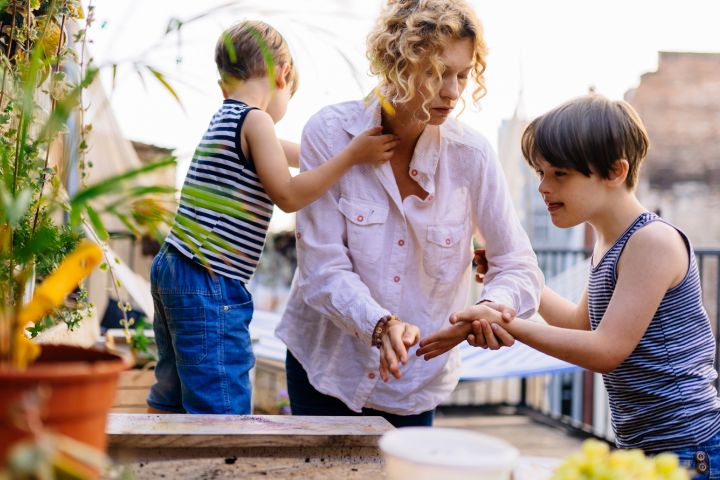When a family experiences setbacks, particularly when a family member has mobility limitations, it affects the dynamics of the whole family. Top of the priority is the welfare of the family member with a disability, and the non-disabled siblings extend understanding towards the situation of their sibling. The family member with a physical disability is not the only one affected by the psychological distress brought by the disability but also the siblings.
Sibling relationships play an important part in the development of a person. Siblings can be a source of support or conflict. They can act as companions, role models, or rivals. But it is different when another sibling has a lifelong physical disability. The experience can bring closeness or gaps among the siblings. The disability can create changes in roles among the non-disabled siblings. They have to make necessary adjustments to accommodate these changes, redefining their relationship. These changes are prominent when parents can no longer provide care for their children with physical disabilities, allowing the non-disabled siblings to assume the responsibility of taking care of their siblings or indeed becoming more responsible for their care as they enter perhaps a Supported Independent Living environment.
Factors that shape sibling relationship
- Age difference
Age differences can affect sibling relationships. Younger ages can display a lack of understanding about the severity of the disability, creating misunderstandings in their relationships. Limited chances for shared activity among young children can also decrease bonding opportunities with the siblings. On the other hand, older age siblings can accommodate and re-evaluate the relationship. They can adjust to the limitations of their sibling with a disability, maintaining a more meaningful relationship.
It’s important to remember how relationships can change as each sibling grows older too. - Experience with the disability
Since the siblings cannot share the experience of disability, it creates differentiation in the relationship. It becomes difficult to discuss the issues of mental health, causing withdrawal from the sibling relationship in some instances. Helping the whole family understand what disability means to the person directly affected can bridge gaps – education and awareness is the key here.
The disability can bring various changes in the physical appearance, personality, or emotional make-up of the family member with a disability. They may become aggressive, irritable, assertive, or quiet, creating differences in interactions. Non-disabled siblings can become wary of how to approach their siblings. Despite it, increased understanding of the disability, empathic interactions, awareness through education and support can help address this differentiation. - Possibility of loss
The possibility of potential loss of the sibling with a disability can be challenging to the other siblings. Although they are grateful that their sibling with a disability is with them, they can be apprehensive and cautious when interacting because of their fragility. In contrast, this can also be an opportunity to develop closeness among siblings. They have the chance to maximise their time together in creating good memories. - Parental treatment
Parents can help shape the relationships between their children – ie. changes in parental treatment can impact sibling relationships. Other children may feel disconnected or alienated from their parents because they attend to the needs of the family member with a disability, increasing resentment from the other children and creating gaps in sibling relationships. These perceptions of parental favouritism can bring psychosocial issues. On the other hand, parents can promote a positive and caring environment to help their children build meaningful, supportive, and positive sibling relationships. Including everyone in as many group activities and conversations can help alleviate many of these issues. - Social stigma
Non-disabled siblings may share a similar experience of social stigma for being associated with someone who has a disability. They may experience judgment or exclusion. In addition, the negative societal attitudes about disability can influence non-disabled siblings. In turn, the sibling with a disability may feel that they are also being judged by their siblings, creating rifts in the relationship. In contrast, the shared experience can foster closeness because of increased understanding and empathy of each other’s feelings and experiences. They become each other’s haven of support against social prejudice, forming empathetic relationships. This is truly where beautiful relationships can be built …
Positive impacts of disability in the sibling relationship
- greater understanding of the experiences of people
- more tolerance and compassion towards people in general
- heightened awareness of the consequences of prejudice
- appreciation of their health and abilities
- feeling that the experience had resulted in closer family ties
- development of responsible, flexible, and tolerant behaviours
Negative impacts of disability in the sibling relationship
- perceptions of parental favouritism
- view of their family as different from other families
- negative reactions of society towards people with disabilities
- feelings of social isolation or low self-esteem
- development of emotional and behavioural problems
- feelings of guilt towards their siblings
- negative feelings about their sibling with a disability
- feelings of being a burden to the other siblings
Ways to improve sibling relationship
- Engage in family therapy to help them share their pain and to promote resilience and togetherness among family members
- Include all children in the care and rehabilitation process to improve their well-being and maintain a harmonious family relationship
- Increase understanding about the disability through psycho-education using different resources such as informational videos, blogs, links to support groups, or books
- Join support groups to express their feelings and have additional support
- Create opportunities for family or sibling bonding
Caring for a family member with a disability is important. Still, it is crucial to focus on the other family members because they are also an integral part of the family and can be part of a support network that helps the whole family. It is also relevant to involve the siblings in the rehabilitation process to address their own wellbeing. Sibling relationships can be a source of conflict, support, or friendship. It is vital to cultivate a positive sibling relationship to buffer any setbacks and we encourage taking all effort possible to actively promote good sibling relationships for the positive health of everyone involved.
Content provided by our partners in mental wellness:





Comments are closed.